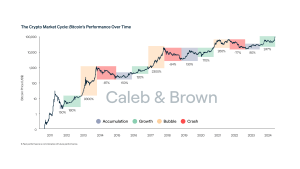A Beginner’s Guide to Online Stock Trading
Demystify online stock trading! Learn winning strategies, smart risk management, and navigate regulations. Become a confident trader – from beginner to pro.
The world of online stock trading has exploded in recent years‚ offering unprecedented access to global markets․ Anyone with an internet connection can now participate‚ but it’s crucial to understand the complexities before diving in․ This guide aims to demystify the process‚ offering valuable insights for both novice and seasoned investors․ We will explore various strategies‚ risk management techniques‚ and regulatory considerations to equip you with the knowledge needed to navigate this dynamic landscape successfully․
Understanding the Basics of Online Stock Trading
Before you even think about placing your first trade‚ it’s essential to grasp fundamental concepts․ What are stocks? Simply put‚ they represent fractional ownership in a publicly traded company․ When you buy a stock‚ you become a shareholder‚ and theoretically‚ you are entitled to a portion of the company’s profits․ However‚ this doesn’t guarantee returns; stock prices fluctuate based on numerous factors‚ including company performance‚ market trends‚ and global events․ Learning to analyze these factors is crucial for successful trading․
Types of Stock Orders
Different order types allow you to execute trades in various ways‚ tailoring your strategy to specific market conditions․ Understanding these is key to effective trading․ Here are a few common order types:
- Market Order: This is the most straightforward type․ It instructs your broker to buy or sell at the best available current price․
- Limit Order: This allows you to specify the maximum price you’re willing to pay (for a buy order) or the minimum price you’re willing to accept (for a sell order)․ Your order will only be executed if the market price reaches your specified limit․
- Stop-Loss Order: This order is designed to limit potential losses․ It triggers a market order to sell your stock once the price falls to a predetermined level․
- Stop-Limit Order: This combines elements of stop-loss and limit orders․ It triggers a limit order to sell your stock once the price falls to a predetermined level‚ but the sale will only be executed at or above your specified limit price․
Choosing the Right Online Broker
Selecting a reputable online broker is paramount․ Different brokers offer various features‚ fees‚ and levels of customer support․ Consider these factors when making your choice:
Key Factors to Consider When Choosing a Broker
- Fees and Commissions: Compare trading fees‚ account maintenance fees‚ and any other charges associated with the platform․
- Trading Platform: The platform’s user-friendliness‚ features‚ and available tools significantly impact your trading experience․ Look for intuitive navigation‚ charting tools‚ and research capabilities․
- Investment Options: Ensure the broker offers access to the types of investments you want to trade‚ such as stocks‚ bonds‚ ETFs‚ or options․
- Customer Support: Reliable customer support is crucial‚ especially when dealing with technical issues or questions about your investments․
- Security: Choose a broker with robust security measures to protect your funds and personal information․
- Educational Resources: Many brokers provide educational resources‚ including webinars‚ tutorials‚ and market analysis‚ which can be invaluable for new investors․
Developing a Trading Strategy
Successful online stock trading requires a well-defined strategy․ This strategy should consider your risk tolerance‚ investment goals‚ and time horizon․ Avoid impulsive decisions; instead‚ base your trades on thorough research and analysis․
Fundamental Analysis vs․ Technical Analysis
Two primary approaches guide investment decisions: fundamental and technical analysis․ Fundamental analysis involves evaluating a company’s financial health‚ management team‚ and industry position to determine its intrinsic value․ Technical analysis‚ on the other hand‚ focuses on past price and volume data to predict future price movements․ Many successful traders use a combination of both approaches․
Risk Management: A Crucial Element
Risk management is paramount in online stock trading․ Never invest more money than you can afford to lose․ Diversification‚ spreading your investments across different stocks and asset classes‚ is a vital risk mitigation strategy․ Setting stop-loss orders can help limit potential losses on individual trades․ Regularly reviewing your portfolio and adjusting your strategy as needed is also essential․
Understanding Market Volatility and Economic Indicators
The stock market is inherently volatile‚ influenced by a wide range of economic and geopolitical factors․ Understanding these factors can help you anticipate market trends and make more informed trading decisions․ Keep an eye on key economic indicators such as inflation‚ interest rates‚ and unemployment figures․ Global events‚ such as political instability or natural disasters‚ can also significantly impact market sentiment․
The Importance of Staying Informed
Staying abreast of current events and market trends is crucial for successful online stock trading․ Read reputable financial news sources‚ follow market analysts‚ and utilize the research tools provided by your broker․ Continuous learning and adaptation are key to long-term success in this dynamic environment․
Regulations and Legal Considerations
Online stock trading is regulated to protect investors․ Familiarize yourself with the relevant regulations in your jurisdiction․ Understanding these rules helps ensure compliance and minimizes the risk of legal issues․ Be aware of fraudulent schemes and scams; never invest in anything you don’t fully understand․
Long-Term Investing vs․ Day Trading
Online stock trading encompasses various strategies‚ from long-term investing to short-term day trading․ Long-term investing involves holding stocks for an extended period‚ often years‚ aiming for capital appreciation and dividend income․ Day trading‚ on the other hand‚ involves buying and selling stocks within the same day‚ aiming to profit from short-term price fluctuations․ Each approach has its own set of risks and rewards; carefully consider your risk tolerance and investment goals before choosing a strategy․
The Psychological Aspect of Trading
Emotional decision-making can be detrimental to successful trading․ Fear and greed can cloud judgment‚ leading to poor investment choices․ Developing emotional discipline and sticking to your trading plan is essential for long-term success․ Consider keeping a trading journal to track your performance and identify patterns in your behavior․
Utilizing Technological Tools and Resources
Numerous technological tools and resources can enhance your online stock trading experience․ Many brokers offer advanced charting tools‚ technical indicators‚ and real-time market data․ Utilize these tools to analyze market trends and make informed decisions․ Consider exploring financial news websites‚ investing blogs‚ and educational platforms to expand your knowledge․
Online stock trading offers exciting opportunities but also carries significant risks․ Thorough research‚ a well-defined strategy‚ and disciplined risk management are crucial for success․ Continuous learning and adaptation are essential in this dynamic environment․ Remember to always stay informed about market trends and regulatory changes․ By approaching online stock trading with knowledge and caution‚ you can significantly improve your chances of achieving your financial goals․ Consistent effort and a long-term perspective are key to navigating the complexities of this exciting field․ Success in online stock trading is a journey‚ not a destination․







